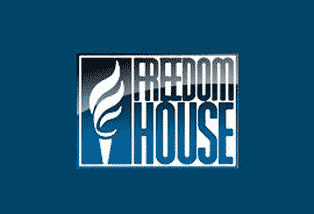Mariam Chiaureli
Radio “Liberty”
Radio “Liberty”
Global freedom suffered its fifth consecutive year of decline in 2010 – the influential human rights organization “Freedom House” concluded in its annual report about freedom in the world. The report evaluates the situation in 194 states and 14 territories worldwide – among them are the disputed territories of Abkhazia and Tskhinvali. According to the Freedom House, some gains were made in the rest of Georgia.
The world’s most powerful authoritarian regimes acted with increased brazenness in 2010, concluded the Freedom House in its last report “Freedom in the World 2011”. Published annually since 1972, Freedom in the World examines the ability of individuals to exercise their political and civil rights. The organization collects information about freedom of expression, political pluralism, and freedom of assembly; then based on its findings it assigns corresponding status to each country: free, partly free and not free.
A total of 25 countries showed significant declines in 2010. The number of countries designated as Free fell from 89 to 87. The two states who’s statuses decline were Ukraine and Mexico. “Ukraine (except the Baltic states) was the only post-Soviet state which was previously declared to be Free. But after the last year’s events, Ukraine fell from Free to Partly Free and we can say, it is the most important and worst decline for the state,” Arch Puddington, director of research at Freedom House said
According to the Freedom House, there is only one region worldwide where decline was observed in the field of political and civil rights since 2001: post-soviet states (except Baltic States).
Puddington cannot identify the reason of the decline but he indicates several factors: Soviet inheritance, non-democratic influence of Russia and economic power gained by the regimes with the support of rich oil and gas resources like in Azerbaijan and Turkmenistan.
“In the former Soviet Union (except Baltic States) the decline was following declines for the last 5-10 years. Russia was on the top of this process however Middle Asia is considered to be the most repressive region in the world where Uzbekistan and Turkmenistan are last on the list; Tajikistan also has very low index as well as Azerbaijan,” said Puddington.
After the Ukraine lost the status of Free State, there are no states left in the post-Soviet region (except Baltic States) with Free status.
Georgia is Partly Free though, and some gains were noted. Director of Studies at the Freedom House, Christopher Walker, said: “Some gains were noted in Georgia – the situation improved in several fields but decline started after inner-political controversy, military conflict and Russian intervention of 2008.”
Freedom House indicates some improvements noted in two more post-soviet states Kyrgyzstan and Moldova. Unlike these two, decline was noted in Belarus and Russia. In Russia, together with China, Egypt, Iran and Venezuela, according to the Freedom House, repressive and freedom restricting measures are getting stronger. The Middle East and North Africa are still the regions with the lowest levels of democracy and continue to be the same in 2010.
“The decline was not very significant worldwide but global freedom suffered its fifth consecutive year of decline in most regions of the world. Thus, 2010 was not a positive year for freedom,” concluded Arch Puddington.
The human rights organization puts Abkhazia and Tshkinvali region in the table of Disputed Countries; Abkhazia was considered Partly-Free and South Ossetia – Not Free.
News
December 13, 2023
Ethnic minorities outside the peace dialogue
November 6, 2023
‘Peace’ agenda of political parties
Popular
Articles
February 13, 2024




